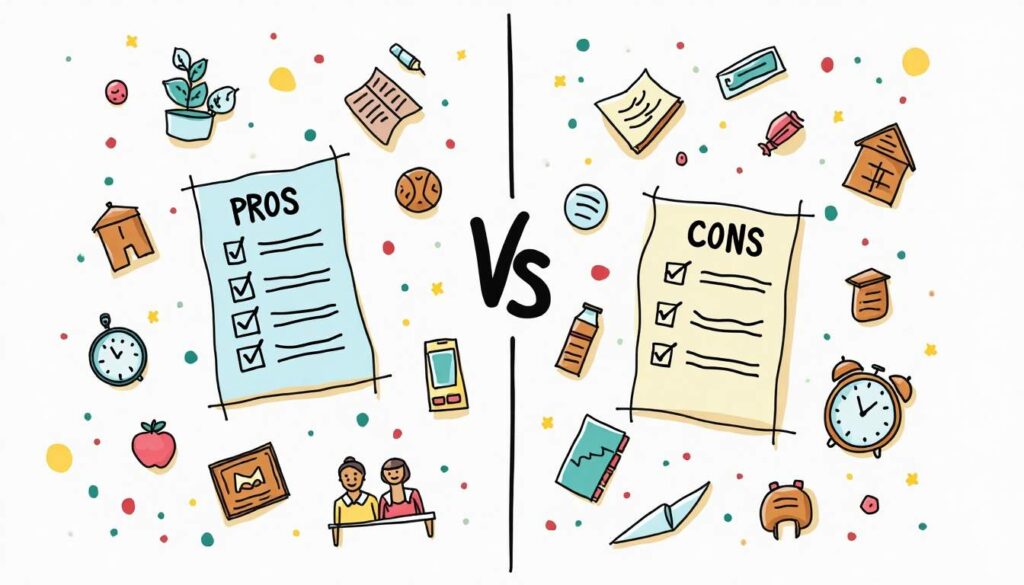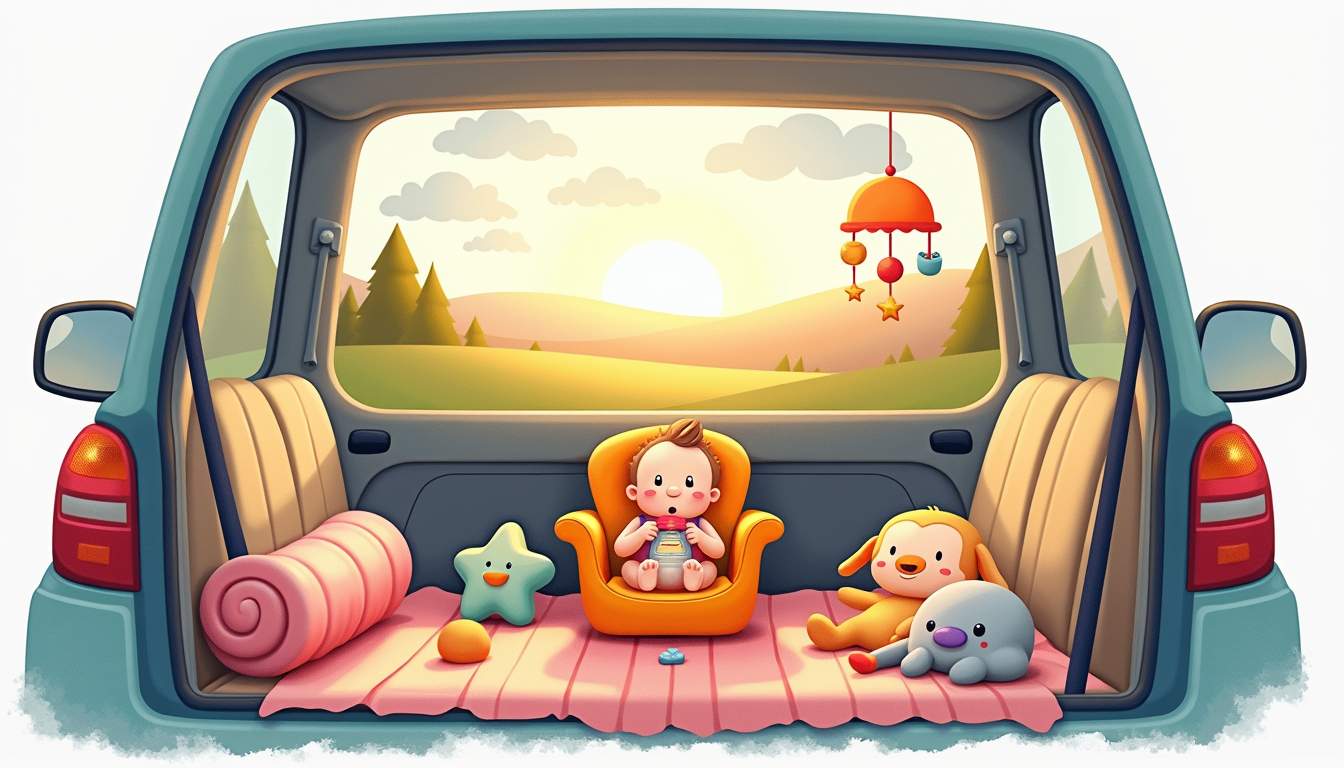Choosing the right care option for your child is one of the most significant decisions parents face. With the rise of dual-income households, many parents find themselves weighing the benefits of daycare against the option of staying at home. Each choice comes with its own set of advantages and challenges, making it essential to understand what might work best for your family. This article explores the pros and cons of both daycare and stay-at-home parenting, helping you make an informed decision.
The Benefits of Daycare
Daycare can be an excellent option for many families, providing structured environments that promote socialization and learning. For working parents, it offers a reliable solution that allows them to focus on their careers while ensuring their children are cared for in a safe setting.

Social Interaction
One of the primary benefits of daycare is the opportunity for children to interact with their peers. This socialization is crucial for developing communication skills, emotional intelligence, and the ability to work in groups. Children learn to share, take turns, and resolve conflicts, which are essential skills that will serve them well throughout their lives.
Moreover, daycare settings often provide a diverse environment where children can learn to appreciate differences in culture, background, and personality. This exposure can foster empathy and understanding from an early age, preparing them for a multicultural world. Engaging with peers from various backgrounds can also spark curiosity and creativity, as children exchange ideas and experiences that broaden their perspectives. Activities such as group storytelling or collaborative art projects can further enhance these social interactions, allowing children to express themselves while learning from one another.
Structured Learning Environment
Daycares typically offer structured activities designed to promote cognitive and physical development. From arts and crafts to music and movement, children engage in a variety of activities that stimulate their minds and bodies. These programs often follow developmental guidelines that ensure children are meeting key milestones.
Additionally, many daycare centers employ trained educators who understand child development and can provide age-appropriate learning experiences. This professional guidance can be invaluable in helping children develop foundational skills in literacy, numeracy, and critical thinking. Furthermore, the incorporation of play-based learning strategies allows children to explore concepts in a hands-on manner, making learning enjoyable and effective. For instance, through interactive games that involve counting or sorting, children can grasp mathematical concepts in a fun and engaging way, laying the groundwork for future academic success.
Flexibility for Parents
For working parents, daycare offers the flexibility needed to maintain a career while ensuring their child is cared for. Many daycare facilities provide extended hours, accommodating parents with varying work schedules. This flexibility can relieve the stress of finding childcare that fits within a parent’s work commitments.
Moreover, daycare can provide a sense of routine for children, which is beneficial for their emotional well-being. Knowing what to expect each day can help children feel secure and confident as they navigate their early years. This structured environment not only supports emotional stability but also aids in developing self-discipline and time management skills. Parents can also benefit from the peace of mind that comes with knowing their child is engaged in a nurturing environment, allowing them to focus on their professional responsibilities without the constant worry about their child’s well-being. Additionally, many daycare centers offer parent engagement programs, providing opportunities for parents to connect with educators and participate in their child’s learning journey, further strengthening the family-childcare relationship.
The Advantages of Staying at Home
While daycare has its benefits, staying at home with your child can also offer unique advantages. Many parents choose this route to foster a closer bond with their children and to have more control over their daily routines and activities.
Bonding and Attachment
One of the most significant advantages of staying at home is the opportunity to build a strong bond with your child. The early years are critical for attachment, and being present during this time can help foster a secure relationship. Children who have strong attachments to their caregivers tend to develop better emotional regulation and social skills.
Staying at home allows parents to be deeply involved in their child’s daily experiences, from playtime to learning activities. This involvement can lead to a more profound understanding of a child’s needs and preferences, ultimately enhancing the parenting experience.
Customized Learning and Development
When staying at home, parents have the flexibility to tailor their child’s learning experiences to fit their interests and developmental pace. This individualized approach can lead to more engaging and meaningful learning opportunities. Parents can introduce concepts and skills when their child is ready, rather than adhering to a standardized curriculum.
Moreover, home environments can be rich in learning opportunities. Everyday activities, such as cooking, gardening, or shopping, can be transformed into educational experiences that teach children about math, science, and language in a practical context.
Cost Considerations
Financial considerations play a significant role in the decision between daycare and staying at home. Daycare can be expensive, with costs varying widely depending on location and the quality of the facility. For some families, the cost of daycare may outweigh the benefits, especially if one parent can stay home without significantly impacting the household income.
Staying at home can also eliminate daycare costs, allowing families to allocate their budget toward other essential needs. However, it’s essential to consider the long-term financial implications of one parent staying home, including potential impacts on career advancement and retirement savings.
Factors to Consider in Your Decision
Ultimately, the decision between daycare and staying at home is a personal one that depends on various factors unique to each family. Here are some key considerations to help guide your choice.

Child’s Personality and Needs
Every child is different, and their personality and needs should play a significant role in your decision. Some children thrive in social settings and enjoy the stimulation of a daycare environment, while others may prefer the comfort and familiarity of home. Observing your child’s behavior in different settings can provide valuable insights into what might be best for them.
Additionally, consider any special needs your child may have. Some children may require more individualized attention or specific support that a stay-at-home parent can provide. Understanding your child’s unique requirements can help you make a more informed decision.
Parental Work Situation
Your work situation is another crucial factor. If both parents work full-time, daycare may be the most practical solution. However, if one parent has a flexible job or can work from home, staying at home might be more feasible. Assessing your work commitments and how they align with your childcare options can help clarify the best choice.
Furthermore, consider the long-term career goals of both parents. If one parent has aspirations for advancement, it may be worth investing in daycare to maintain career momentum. On the other hand, if the priority is family time and nurturing a child’s early development, staying at home may take precedence.
Support Systems
The availability of support systems can also influence your decision. Families with strong support networks, such as nearby relatives or friends who can help with childcare, may find it easier to consider staying at home. Conversely, parents without such support might prefer daycare to ensure their child has structured care while they work.
In addition, consider the emotional support available to you as a parent. Parenting can be isolating, and having a community or support group can make a significant difference in the experience of staying at home. Daycare can also provide a sense of community for both parents and children, offering opportunities for socialization and connection.
Making the Transition
Whether you choose daycare or decide to stay at home, transitioning into your chosen arrangement can be a significant adjustment for both parents and children. Here are some tips to help ease the process.

Preparing Your Child
Preparation is key when transitioning to daycare. If your child will be starting daycare, visit the facility together beforehand to help them become familiar with the environment. Meeting caregivers and other children can also ease anxiety and build excitement for the new experience.
For parents staying at home, establishing a daily routine can help children understand what to expect. Incorporating structured activities, playtime, and learning opportunities can provide a sense of stability and security during the transition.
Communicating Openly
Open communication is essential throughout the transition process. Discuss your decision with your child in an age-appropriate way, explaining what they can expect. Encourage them to express their feelings and concerns, and reassure them that it’s okay to feel a mix of emotions.
For parents, sharing feelings about the transition can also be beneficial. Whether it’s excitement, anxiety, or uncertainty, acknowledging these emotions can help create a supportive environment for both parents and children.
Monitoring and Adjusting
After the transition, it’s essential to monitor how your child is adjusting to their new routine. Pay attention to their behavior, mood, and overall happiness. If any issues arise, don’t hesitate to reach out to caregivers or seek additional support.
For those staying at home, be open to adjusting your routine as needed. Flexibility can help accommodate your child’s evolving needs and interests, ensuring that the home environment remains engaging and nurturing.
Conclusion
Choosing between daycare and staying at home is a deeply personal decision that requires careful consideration of various factors. Both options offer unique benefits and challenges, and what works for one family may not be suitable for another. Ultimately, the best choice is one that aligns with your family’s values, needs, and circumstances.
Regardless of the path chosen, it’s essential to prioritize your child’s well-being and development. Whether through the socialization and structured learning of daycare or the nurturing and individualized attention of staying at home, what matters most is creating a loving and supportive environment for your child to thrive.
As parents navigate this decision, staying informed and connected with other families can provide valuable insights and support. Remember, there is no one-size-fits-all answer; trust your instincts and choose what feels right for your family.










